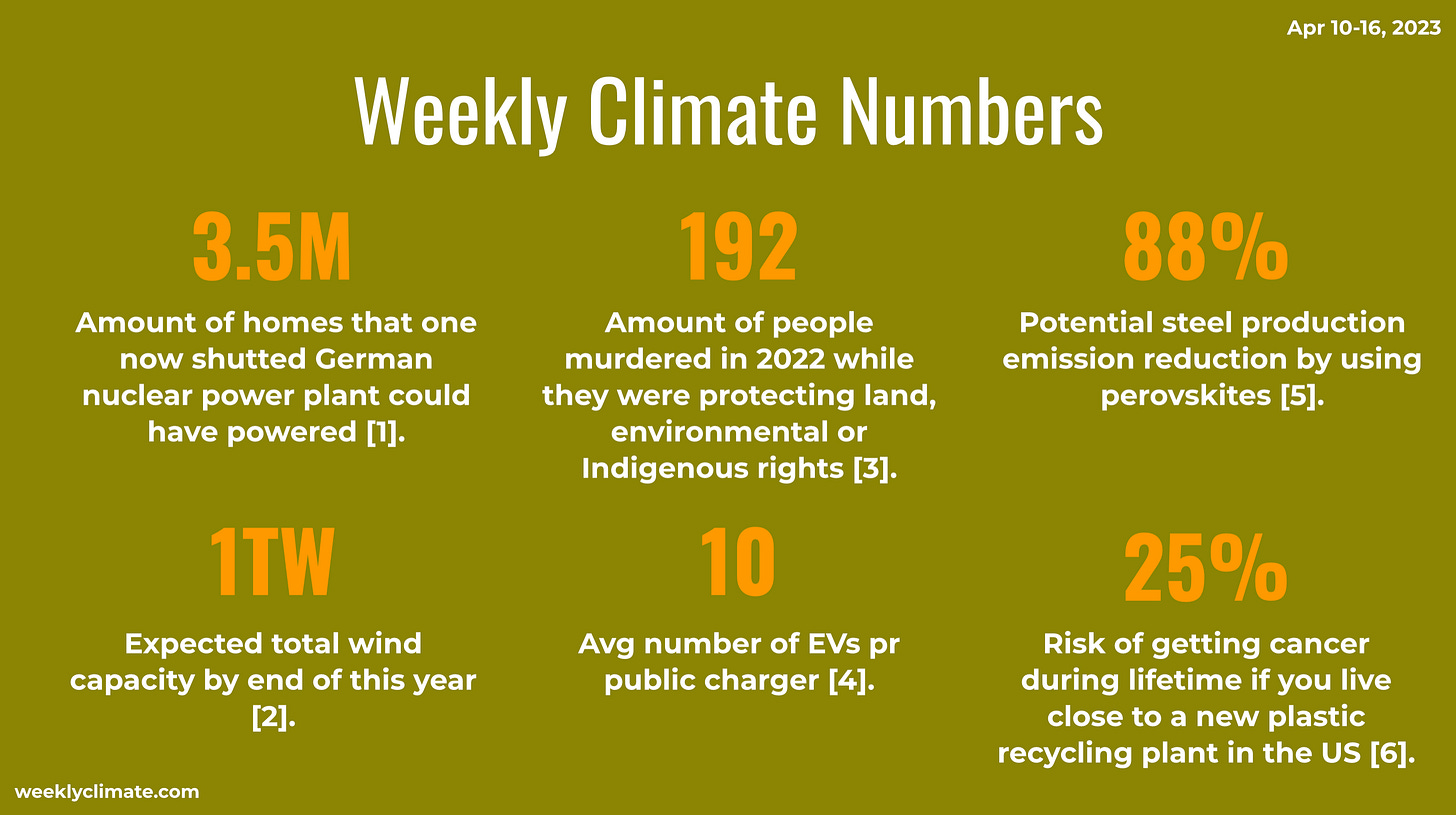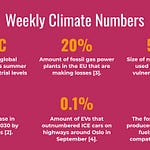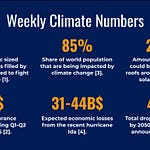Welcome to this week’s edition of The Weekly Climate 🎉
References: [1], [2], [3], [4], [5] and [6].
A brief note (pun intended), that I’m now on Substack Notes. After Twitter blocked Substack a week or so ago I’m now trying Substack’s competing thing out. You can follow me there, if you aren’t already. My plan is to try and use it more than ever used Twitter 😅, but we’ll see about that.
Remember that you can once again listen to the newsletter as a podcast right here, if you want to 🎧. Free subscribers get the first minutes to try it out and remember that you can always upgrade or try a free trial if you want to check out the whole thing.
‼️News you can’t miss
Here’s one important scary/bad (🙀), good (😻), interesting (😼) and fossil (💩) news item.
🙀 Emissions from banned F-gases are mysteriously rising
😻 Fossil gas can’t compete with renewables.
😼 Why are global taxpayers propping up the fossil fuel industry?
💩 New leaked fossil fuel memo reveals how much the fossil fuel industry was expecting in terms of climate migration and more.
👩⚕️ Status: Climate & Science
Let’s look at how we’re doing this week!
[#f-gas] — A recent study published in Nature Geoscience shows that emissions from banned chlorofluorocarbons (CFCs) are on the rise, with implications for both the ozone layer and climate change. While some of the increase can be attributed to a loophole in the Montreal Protocol that allows for CFC emissions in the production of hydrofluorocarbons (HFCs), two of the CFCs measured are a mystery and not approved for any use. The rise of these chemicals is concerning for their global warming potential and efficacy of the Montreal Protocol.
📰 The 7 Grand Challenges
⚡️Decarbonize Electricity
Clean electricity is the one do-or-die challenge we must solve.
[#renewables] — A new levellised cost of energy assessment by Lazard confirms that wind and solar, even with battery storage, are cheaper than fossil fuels. The assessment shows that on pretty much any assessment, wind and solar win easily, without counting the carbon cost of their competitors. The study also notes that despite moderate to significant increases in the LCOE of new renewable assets in the last year, costs for so-called “best in class” renewable assets continue to decline.
[#nuclear] — Germany is shutting down its last three operating nuclear power reactors, marking the end of a more than 20-year journey away from nuclear power. The decision to phase out nuclear power was made by various coalition governments in the country, with the last new nuclear power plant commissioned in 1989. The closure of the last three reactors, Isar 2, Emsland, and Neckarwestheim 2, all pressurized water reactors, had been due to end their lives by the end of last year, but were allowed an extension for the winter following energy capacity concerns as a result of the Russia-Ukraine war.
[#wind] — According to a market outlook by Wood Mackenzie, global wind energy capacity is projected to hit 1 TW this year and double to 2 TW in the next 8 years, with offshore wind alone experiencing sevenfold growth by 2032. However, the need for rapid expansion of transmission and grid interconnection is highlighted as transmission takes a long time to build and without it, resources cannot be brought online. The federal government and states need to make transmission buildout a top priority to meet decarbonization goals and save costs.
🏘 Reduce impact of urban and rural areas
Lowering the impact of urban and rural areas.
[#electrification] — This article from The New York Times discusses the idea of electrifying almost everything in order to tackle climate change. The article explores the challenges of electrifying transportation, residential and commercial buildings, and industry, as well as the need for sweeping changes to the nation's power grids. But even though there are challenges, as Saul Griffith puts it: “How on Earth are we going to power the modern economy cleanly,’ nothing else makes sense”.












